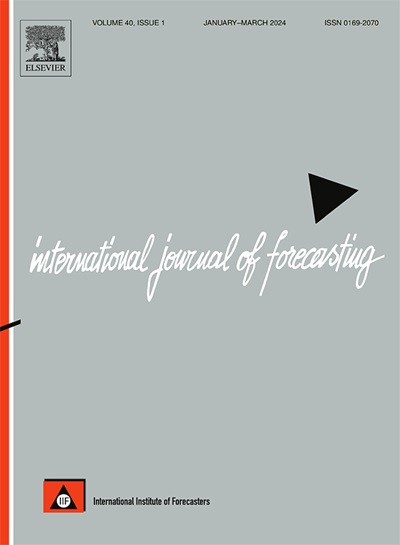单阶段投资组合优化与自动机器学习的M6
IF 7.1
2区 经济学
Q1 ECONOMICS
引用次数: 0
摘要
M6预测竞赛的目标是通过评估参与者的预测能力及其投资策略的表现来阐明有效市场假说。在本文中,我们用一种直接从数据中优化投资组合权重的方法来挑战“估计然后优化”的方法。我们将投资组合选择作为一个约束惩罚回归问题。我们提出了一种数据驱动的方法,自动执行模型选择和超参数调整以最大化目标,而没有噪声或潜在的错误指定中间步骤。最后,我们展示了如何使用移动渐近线方法来优化投资组合的权重。通过对M6比赛数据的测试,我们的方法实现了9.5%的全球收益率和5.045的信息比,这与M6比赛团队的平均IR为−3.421和M6基准的IR为0.453形成鲜明对比。本文章由计算机程序翻译,如有差异,请以英文原文为准。
Single-stage portfolio optimization with automated machine learning for M6
The goal of the M6 forecasting competition was to shed light on the efficient market hypothesis by evaluating the forecasting abilities of participants and performance of their investment strategies. In this paper, we challenge the ‘estimate-then-optimize’ approach with one that directly optimizes portfolio weights from data. We frame portfolio selection as a constrained penalized regression problem. We present a data-driven approach that automatically performs model selection and hyperparameter tuning to maximize the objective without noisy or potentially misspecified intermediate steps. Finally, we show how the portfolio weights can be optimized using the Method of Moving Asymptotes. Testing on the M6 competition data, our approach achieves a global rate of return of 9.5% and an information ratio of 5.045, which is in stark contrast to the mean IR of the M6 competition teams of −3.421 and the IR of 0.453 for the M6 benchmark.
求助全文
通过发布文献求助,成功后即可免费获取论文全文。
去求助
来源期刊

International Journal of Forecasting
Multiple-
CiteScore
17.10
自引率
11.40%
发文量
189
审稿时长
77 days
期刊介绍:
The International Journal of Forecasting is a leading journal in its field that publishes high quality refereed papers. It aims to bridge the gap between theory and practice, making forecasting useful and relevant for decision and policy makers. The journal places strong emphasis on empirical studies, evaluation activities, implementation research, and improving the practice of forecasting. It welcomes various points of view and encourages debate to find solutions to field-related problems. The journal is the official publication of the International Institute of Forecasters (IIF) and is indexed in Sociological Abstracts, Journal of Economic Literature, Statistical Theory and Method Abstracts, INSPEC, Current Contents, UMI Data Courier, RePEc, Academic Journal Guide, CIS, IAOR, and Social Sciences Citation Index.
 求助内容:
求助内容: 应助结果提醒方式:
应助结果提醒方式:


